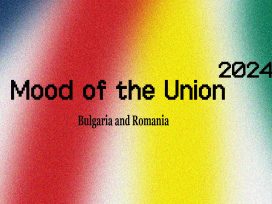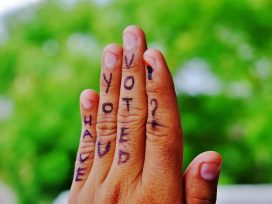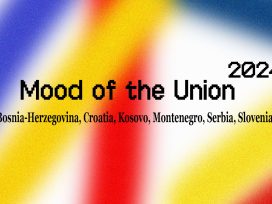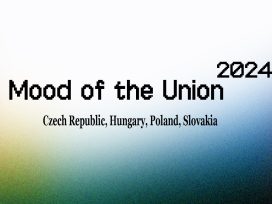On 18 February 2008, the third division English soccer team Ebbsfleet took a radical step toward football democracy: for the modest fee of 35 pounds the fans were offered the right to manage the team themselves by voting on the Internet in real time on all important issues. These ranged from the transfer of players and the management of the budget to the design of the souvenirs in the store. Thirty-two thousand supporters from 122 countries joined what has been called “this ultimate football fantasy”. The creator of the site for the project, former copy writer Will Brooks, defended his brilliant business plan for the financial salvation of the club by essentially democratic arguments: their disinterested emotional engagement with the cause of the team, he said, should grant the fan rights and responsibilities. He even compared Ebbsfleet’s tactics to those of the international brigades during the Spanish civil war; they voted to decide when to attack and when to retreat. Whether the team will be as inefficient on the battlefield and as popular emotionally as the international brigades remains to be seen.
The question this case raises is about the role of power given the state of permanent feedback made possible by the new technology and necessary by the new global ideology.
“Direct democracy” does not seem an adequate term here; following Aristotle or Montesquieu, I would rather use the term “democracy of opinion”. That is to say the shifting, emotional, fickle reaction of the anonymous crowd unregimented by institutions. Bear in mind that contemporary public opinion is not just a formless outburst of passions, but carefully monitored, reproduced, bought and sold. I do not mean that public opinion is necessarily manipulated, but rather that the places and forms in which it materializes have become a profitable industry: public opinion is increasingly provoked, analysed, over-interpreted. If there is manipulation, it consists in ensuring that audiences express passionate opinions, not in predetermining what these actually are.
One possibility is to see the culture of industrially extracted doxa as a side effect of popular culture. In 2005, the viewers of the US series One Tree Hill were invited to vote by SMS whether Nathan kiss his sister-in-law while his wife is out of town? However important such a choice might seem, it does not necessarily lead to deep changes for society and remains within the realm of “culture”. We could thus imagine that, in a subsequent episode, the viewers who have empathized with Nathan’s passion will be moved by the suffering of his betrayed wife and send another SMS asking the scriptwriter to bring him back to his family and then, under the urge of the hormone, to make him cheat on her again so that the plot ambiguity is never resolved and relations never definitely settled.
The culture of constant feedback has a very similar effect on democratic politics today.
Take the logic of military intervention after the end of the Cold War. Even dictators like Saddam Hussein or Slobodan Milosevic made good use of keywords such as “democracy” or “human rights”. More important, their political gestures were situated within the same hyper-sensitive media environment as those of democratic leaders: an environment that no one can fully control today. As a result, politics falls into the trap of the permanent feedback syndrome known as “the CNN effect”, We have seen it in operation in the coverage of events in Somalia, Bosnia and Haiti during the 1990s.
The cycle begins with pictures of human suffering provoked by some vicious dictatorship. The global media, personified by CNN, dramatizes and moralizes it, offering the powerless viewer unbearable live coverage day after day. Public opinion in democratic countries begins to exercise pressure on its governments to intervene, stop the horror and punish the culprits. It is then that governments in the West can no longer stand aloof; they decide to send troops into the arena. Usually this is done hurriedly and without long-term planning as governments try to catch up with public feeling, rather than with rational, political considerations. The flow of images now turns around: casualties are seen on the other side and this is increasingly often seen as “our” fault. One image in particular the media cherish is the unbearable sight of western soldiers being sent back home in plastic bags. Public opinion soon makes a U-turn and starts to pressurize governments into withdrawing as fast as possible from this godforsaken spot. The public starts to calculate the more positive impact of humanitarian aid – and at a fraction of the cost of the military intervention. Finally, the campaign is stopped midstream, which usually results in a situation worse than that before the intervention. Opposing conspiracy theories try to rationalize this absurdity through complex geopolitical plots. This cycle, reduced to the absolute “now” of live broadcasting, makes it impossible for any policy to be brought to a proper conclusion: the feedback from the first measures undertaken hamper the next ones. The parallel between Nathan’s romantic yearnings and Bill Clinton’s humanitarian wars is more than a joke.
It might be objected that this was already the case during the Vietnam War: the US lost the war because of media feedback. Obviously the Vietnam syndrome was made possible by the liberalizing of the media, which happened earlier in the US than elsewhere, combined with a more immediate democratic legitimizing of power. What happened in the 1990s was that liberating the media from government control and allowing it to become essentially market-oriented, amounted to giving every other country a license to participate in the global exchange. The Vietnam syndrome went global. The other aspect of this process was technology, specifically the digital revolution. This made possible the projection of ever more realistic images, 24-hours-a-day, in real time, to any spot on the planet.
Another specific techno-institutional development is the global use of opinion polls. Since 1936, when the opinion poll conducted by George Gallup, based on a small but representative sample, beat that of Literary Digest, based on their enormous but random reading audience, opinion polls have developed dramatically. Today, they operate not only through computerized simulations of populations and territories, but also make use of each new form of communication as it appears: telephone, e-mail, social networks and now Twitter. Political elites in the developed world cannot lift a finger without being monitored in real time by some form of poll, translated into rating tables and varicoloured stacks of indignation or slices of approval, analysed and meta-analysed. Let me underline again that the social constructedness of opinion should not be seen as manipulation. Opinion is produced and sold in the marketplace where numerous actors with different interests compete. The main issue is not whether opinion is right or wrong, but rather that it is seen as a legitimate form of feedback that justifies policy decisions. For example, if “x” per cent of the population polled wants us to withdraw our troops we need to do so, even if the anonymously polled citizens cannot imagine what the consequences might be.
We are thus facing the challenges posed by the culture of constant feedback, a kind of literal democracy fulfilled ad absurdum. Global cultural franchises like Big Brother or Dancing Stars are aestheticizing it, offering, from time to time, a hybrid of politics and entertainment – as in the choice of candidate for the Argentine People’s Party by the audience of Pop Idol in 2002, or the participation of the liberal politician Emil Koshlukov in VIP Brother in 2009. It was assumed the latter was to raise funds for philanthropic causes, in fact, it was part of his election campaign. For more traditional observers this is a clear indication of the degradation of politics. But that degradation has rather different causes: citizens feel alienated from the ever more complex expertise needed to see the real alternatives in today’s consensual democracies.
There is a more interesting interpretation of this tendency according to which the different forms of immediate and spontaneous feedback, with which the popular media is currently experimenting, will set the model for the future development of democracy. For Liesbet van Zoonen there is a direct analogy between the political community and the community of fans based on the emotional ties between their respective members. Fan-democracy is thus seen as an opportunity to overcome the postmodern fragmentation of political life. In A tale of two houses Stephen Coleman puts the UK House of Commons and the Big Brother house side by side: emotional preference for the second is based on what in most contexts would be essentially political expectations: transparency, proximity, respect and, above all, interactivity. Reality show formats today make citizens feel stronger: they feel empowered in the way that democratic elections are supposed to make them feel – but fail to do so. The author believes there are things the first House could learn from the second. Let me reinforce his argument: the much higher level of feedback in commercial popular culture tends to become the moral norm that draws outdated democratic procedures forward.
What would a developing live democracy that is trying to catch up with popular culture be like? There would be no time for trial and error. Feedback would be permanent and total: society’s bed would be surrounded by numerous machines taking its pulse, its temperature and monitoring all imaginable parameters, and presenting the results immediately, re-measuring its reaction, re-presenting them and so on ad infinitum.
In such a world, power is at the opposite pole from that defined by Fyodor Dostoevsky in The Legend of the Grand Inquisitor: it was, he said, “miracle, mystery and authority”, the transcendence of an aesthetic, epistemological and ethical order. In the world of permanent feedback there is not sufficient distance for transcendence to emerge: Oprah Winfrey can ask the US President whether he wears briefs or boxers. Let us leave the miracles to Hollywood. As for keeping things secret: it is all but impossible given the “leaks” from institutions anxious to keep the incontrollable media supplied with information on all and sundry. The insider disclosures of torture in Guantanamo or, more recently, of the Bulgarian National Security Agency spying on deputies are examples. In the early stages of “modernity”, such information leaks would have been seen as treason, today, on the contrary, we are increasingly suspicious of any attempt by those in power to keep secrets, whatever the reason.
The best moment for taking serious governmental decisions has always been at the beginning of a mandate, when the democratically elected politicians still have popular legitimacy. Today, this margin has shrunk amazingly: Obama was said to have only a couple of months to pass his difficult healthcare reform through the needle’s eye of Congress and public opinion; in 2009, the Bulgarian government was in even more of a hurry to get its root and branch reform of higher education through parliament – the interval between the nomination of education minister Sergey Ignatov and the submission of the project to parliament was just one month.
Where might this trend lead? Former British prime minister Tony Blair once complained that it had become a common practice for UK journalists to intercept him on his way to government meetings and ask him to make a statement about decisions yet to be taken: obviously, information about the real meeting and the decisions taken would come too late to meet deadlines and do not have much media value anyway. But this preempts democratic procedures, with the PM determining the outcome of what should be collective decisions on his own. In the Bulgarian version, such shifting of public attention from the result to the announcement can be seen in the substitution of the policeman in place of the judge. The police operation in pursuit of a criminal is an exciting announcement, activating various movie patterns, whereas the court sentencing comes much later and is always disappointing because by then emotions have already been consumed.
The distance that used to be maintained between authority and the public – and that was a cornerstone of its power – can no longer be sustained. Permanent live communication between the governing and the governed does not leave any space for the accumulation of authority. The more we suspect politicians of being irresponsible, the less room we leave them to assume their responsibilities but expect them to respond instantly to social anxieties. One way of coping with this trap is to produce conspiracy theories that ascribe obscure and infernal strategies, and behind-the-scenes scheming to those in power.
Let us go back to the English soccer team governed by its own fans and imagine that at any moment the fans get annoyed with a player and vote for the manager Liam Daish to replace him. If the decision proves to be wise, Daish will get no credit; if the team looses he cannot be held responsible since he has simply executed the impulsive decision of the “shareholders”. The question of the manager’s subjectivity emerges only when they start to suspect him of playing some secret game, such as plotting to make his team loose because he has been bribed by a competitor. Paranoid suspicion remains the last resort of reason.
The game of political irresponsibility is usually related to plebiscite democracy where populist leaders of the Bonapartist type hide behind the opinion of the “people”. What I am talking about here is different: not the (mis)use of the passions of the crowd by a particular political player, but rather a new culture of everyday plebiscite (to use Renan’s famous saying) that happens “automatically” and reduces politicians to mere functions of fluctuating emotions. Ministers have approval ratings, likes or dislikes are quantifiable, “voting” is carried out daily by polling agencies. The link to one’s own leader as in the past, however ambivalent, has disappeared; leaders are now in the marketplace and we can choose between them. The model subject, who assumes responsibility for the triumphs and failures of the group is gone; his or her place has been taken by a sounding board that amplifies the audience’s emotions.
Critiques of these developments in terms of populism seem to miss the point. Populists are usually seen as marginal politicians who appeal to the lowest sentiments of the population without thinking of fulfilling their promises tomorrow. From what has been said so far it should be clear that populism today is not a phenomenon of the periphery but of the mainstream; the techno-ideological imperative of immediate and permanent feedback has shrunk time and space and put the quick response to public passion at the centre of political contention. All the major players need to excel in these disciplines. Leaving aside differences in ideological content, we should acknowledge that Silvio Berlusconi is more populist than Alessandra Mussolini, Nicolas Sarkozy than Jean-Marie Le Pen, Vladimir Putin than Gennady Zyuganov, Boyko Borissov than Volen Siderov.
Let me summarize the new media-political constellation. Politicians act within a hyper-reactive environment in which each move provokes a torrent of images. Instead of pursuing strategic goals and being judged according to results, their activity is scrutinized live: it is as if the patient on the surgical table has acquired the right to scream, “It hurts, stop cutting!” so that the operation is suspended, re-started at some other place, stopped again, and so on.
A term that might help in thinking about this new state of the political is “reflexivity”. The second phase of modernity is reflexive precisely because it changes its goals once it foresees the consequences of its achievements.
If we transpose this observation from the ecological sphere to today’s political practice, we shall have to face the paradox of live feedback unmediated by institutions. At any given moment, power reflects on the (electoral) consequences of its acts: it avoids abrupt moves, maintains emotional balance in the over-represented and monitored social world. As we known since the time of Montesquieu, power legitimates itself by self-restraint. In fact, the legitimacy of the new power tends towards the absolute: it refrains from governing at all.







